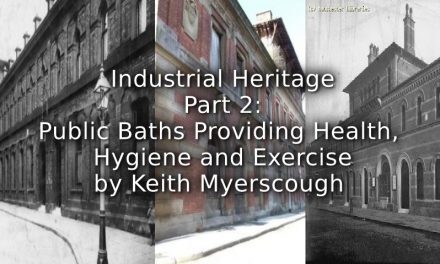Presented by: Syliva Koelling at the SpLeish Colloquium, March 2017
Much of the historical analysis of public baths and wash-houses provision in the UK has been focused on the broad picture and the large processes of how public health legislation (including legislation on baths and wash-houses) came into being and how this impacted in the development of both swimming and swimming provision. Relatively little attention has been paid to how this legislation was implemented (if at all) which gives an inaccurate picture of homogenous and universal public health provision in 1840s England. Rather than presenting the overarching narrative of Miller Street baths and wash-house, this microhistorical analysis of the first four years of this establishment gives insight into Manchester’s public health approach at this time whilst also highlighting the contemporary administrative, financial, and technical realities. Microhistory presents “a profound, multi-faceted, even holistic, grasp of a fragment of historical experience” and as such adds significant detail to the history of the public baths and wash-houses in the UK. Surveying newspaper and committee reports, as well as other documents from the mid- and late-19th century, this presentation will demonstrate that analysing this short time-period in the history of Miller Street baths gives a rich insight into the processes of social change underway in the city at the time. Ultimately, this presentation argues that the short history of this private, experimental establishment shows how national public health legislation had little direct impact on the provision of baths and wash-houses in Manchester because of local administrative and financial circumstances.
Article © Sylvia Kolling






Hello Sylvia,
I am currently writing my family history. I am the oldest child of a family of 10 children growing up in Manchester. The book will not be mass produced as it will be of local residents of the Manchester area. Each chapter of the book touches on a specific topic. There is one relating to personal hygiene when I talk about the need for what was known as the ‘slipper baths’ – the public bathing facilities. I have been searching for images which I could use in my book, and after several weeks of no success came across the books which you have published on this subject. Is it possible that you will give me copyright to use a photograph of the inside of the public baths which you may hold. I only need 2 images at most. Obviously I will acknowledge you as the source within the book itself. I wait your response. Regards Mrs Patricia Woodcock